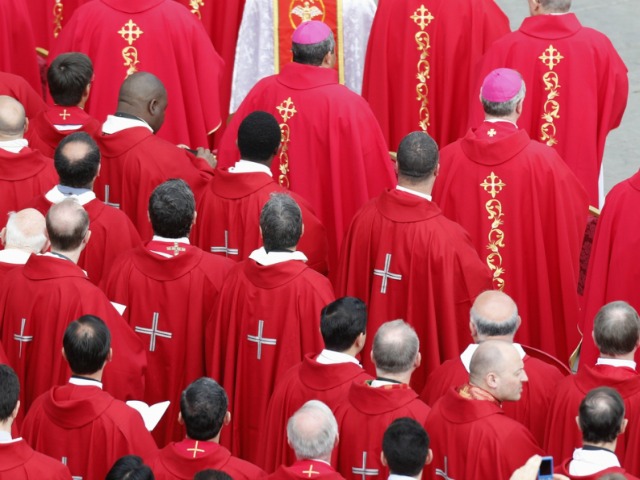
A laicized priest who is the chairman of Jesuit-led Boston College’s religious education department referred to celibacy in Roman Catholic priests as “hazardous” and “destructive.”
Thomas Groome, who appeared on National Public Radio last week, said he believed when he was ordained a priest in 1968 that the Church’s practice of celibacy for priests would change following Vatican II. When the requirement for celibacy remained unchanged, however, Groome said he grew more conflicted about its place in his life.
“In fact, it probably was becoming destructive of me,” Groome said. “And I think that’s one of the dangers of obligatory celibacy, that it can lead to self-destructive and outer-destructive behavior. It’s a hazardous lifestyle.”
Groome said after 17 years he took a leave of absence from the priesthood, then fell in love, applied for dispensation from Rome, and got married. He said that if the rules about celibacy changed, he would consider returning to the priesthood.
However, Bill Donohue of the Catholic League for Religious and Civil Rights called Groome’s comments about celibacy “pure rubbish.”
As the Christian Post reported, Donohue said, “Why Thomas Groome would enter the priesthood counting on the Catholic Church to change its teaching on celibacy suggests bad judgment: no one would join a vegetarian association hoping it would soon allow for the consumption of hot dogs.”
Donohue said he was “delighted” that Groome is happily married, but said “his notions about celibacy causing self-destructive behavior are pure rubbish. Indeed, self-destructive behavior is what marks Hollywood, not exactly a bastion of celibacy.”
As the head of a Catholic college’s religious education department, Groome openly supported the re-election of Barack Obama in 2012 despite the knowledge that Obama is a pro-abortion president. Groome justified his choice:
Of course I cite Catholic social doctrine (note the weighty term) and the mandate of my faith to care for “the least” among us (Mt 25:34ff). Social programs for the common good and especially for the most vulnerable is central to Catholic social teaching. By contrast, Ayn Rand’s proposal of a “virtue of selfishness,” besides being an oxymoron, is the antithesis of Catholic faith. If implemented as social policy–a la the Romney/Ryan budget–the neediest among us will suffer by far the most. Some 64 percent of its alleged “savings” come from cutting programs that aid poor families and individuals.
The comeback is invariably around abortion, whereupon I explain that my opposition to abortion is precisely the tipping point that prompts my unqualified support of the President.
As a loyal Catholic, I accept the teaching of my Church that “Everyhuman life, from the moment of conception until death, is sacred” andthat abortion is “gravely contrary to the moral law” (Catechism of the Catholic Church #2319, 2271). Though the U.S. Catholic Bishops caution, “As Catholics we are not single issue voters” (Faithful Citizenship, Nov. 2007), yet with some 1.3 million annually in the U.S., abortion presents our country with a grave moral crisis.
The dilemma for citizens like me is that the great majority of our fellow Americans favor some possibility of abortion and do not want to criminalize it again. As Thomas Aquinas taught wisely, laws must reflect “the consensus of the governed” and there is no agreement in this country to ban all abortions. (Even Governor Romney is now making “exceptions.”)
In a 2011 interview in zenit.org, Monsignor Stephen Rossetti discussed his book, Why Priests Are Happy, and the fact that several studies have shown that over 90 percent of priests consider themselves to be happy. Having solid friendships with other priests and lay people has been shown to be a strong factor in priests’ happiness, said Rossetti.
“The secular notion that priests are lonely, isolated men is simply not true,” he said.
“Those priests who felt called by God to live a celibate life and who experienced celibacy as a personal grace, despite its challenges, were much more likely to be happy men,” he added. “The good news here is that over 75 percent of priests have found celibacy to be a positive part of their lives.”
Rossetti said he believes the percentage of priests who have found celibacy to be a gift from God is likely to rise in the future.
“It is the youngest priests who most strongly support mandatory celibacy,” he said.

COMMENTS
Please let us know if you're having issues with commenting.